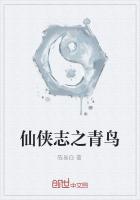If that be gone, it can be brought back by no turnips or cellular clothing;but only by tears and terror and the fires that are not quenched.
If that remain, it matters very little if a few Early Victorian armchairs remain along with it. Let us put a complex entree into a simple old gentleman; let us not put a simple entree into a complex old gentleman. So long as human society will leave my spiritual inside alone, I will allow it, with a comparative submission, to work its wild will with my physical interior. I will submit to cigars.
I will meekly embrace a bottle of Burgundy. I will humble myself to a hansom cab. If only by this means I may preserve to myself the virginity of the spirit, which enjoys with astonishment and fear.
I do not say that these are the only methods of preserving it.
I incline to the belief that there are others. But I will have nothing to do with simplicity which lacks the fear, the astonishment, and the joy alike. I will have nothing to do with the devilish vision of a child who is too simple to like toys.
The child is, indeed, in these, and many other matters, the best guide.
And in nothing is the child so righteously childlike, in nothing does he exhibit more accurately the sounder order of simplicity, than in the fact that he sees everything with a simple pleasure, even the complex things. The false type of naturalness harps always on the distinction between the natural and the artificial.
The higher kind of naturalness ignores that distinction.
To the child the tree and the lamp-post are as natural and as artificial as each other; or rather, neither of them are natural but both supernatural. For both are splendid and unexplained.
The flower with which God crowns the one, and the flame with which Sam the lamplighter crowns the other, are equally of the gold of fairy-tales. In the middle of the wildest fields the most rustic child is, ten to one, playing at steam-engines. And the only spiritual or philosophical objection to steam-engines is not that men pay for them or work at them, or make them very ugly, or even that men are killed by them; but merely that men do not play at them.
The evil is that the childish poetry of clockwork does not remain.
The wrong is not that engines are too much admired, but that they are not admired enough. The sin is not that engines are mechanical, but that men are mechanical.
In this matter, then, as in all the other matters treated in this book, our main conclusion is that it is a fundamental point of view, a philosophy or religion which is needed, and not any change in habit or social routine. The things we need most for immediate practical purposes are all abstractions. We need a right view of the human lot, a right view of the human society; and if we were living eagerly and angrily in the enthusiasm of those things, we should, ipso facto, be living simply in the genuine and spiritual sense.
Desire and danger make every one simple. And to those who talk to us with interfering eloquence about Jaeger and the pores of the skin, and about Plasmon and the coats of the stomach, at them shall only be hurled the words that are hurled at fops and gluttons, "Take no thought what ye shall eat or what ye shall drink, or wherewithal ye shall be clothed. For after all these things do the Gentiles seek.
But seek first the kingdom of God and His righteousness, and all these things shall be added unto you." Those amazing words are not only extraordinarily good, practical politics;they are also superlatively good hygiene. The one supreme way of making all those processes go right, the processes of health, and strength, and grace, and beauty, the one and only way of making certain of their accuracy, is to think about something else.
If a man is bent on climbing into the seventh heaven, he may be quite easy about the pores of his skin. If he harnesses his waggon to a star, the process will have a most satisfactory effect upon the coats of his stomach. For the thing called "taking thought,"the thing for which the best modern word is "rationalizing,"is in its nature, inapplicable to all plain and urgent things.
Men take thought and ponder rationalistically, touching remote things--things that only theoretically matter, such as the transit of Venus.
But only at their peril can men rationalize about so practical a matter as health.















